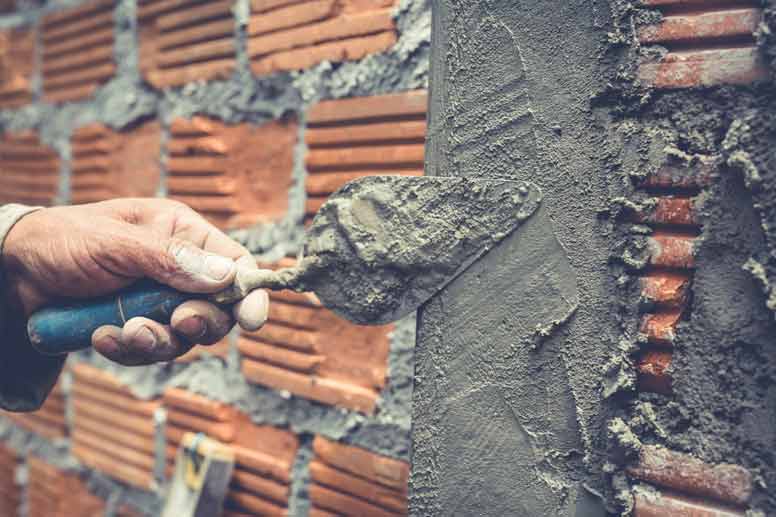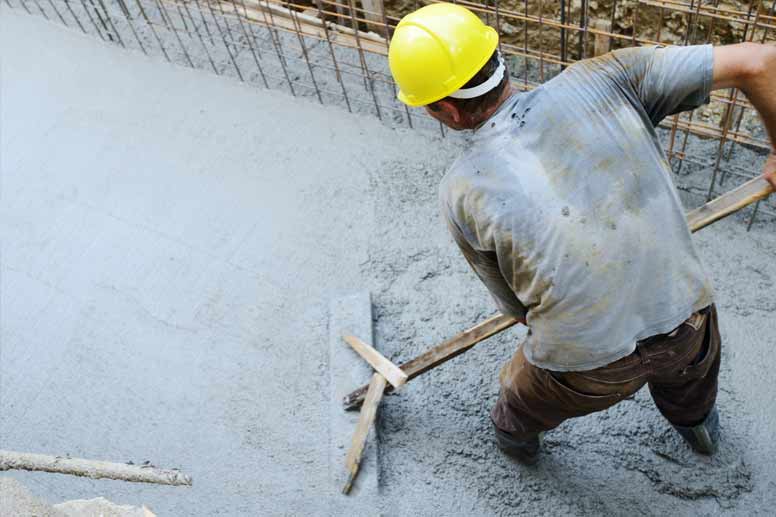How To Get Your Concrete License in the United States

Table of Contents
Getting a concrete license is an essential step for professionals looking to advance their careers in the concrete industry.
Whether you’re starting a new business or looking to expand your services, having a concrete contractor license can open doors to more projects, higher pay, and increased credibility.
This guide will walk you through everything you need to know about obtaining a concrete license, including state-specific requirements, general processes, and tips for getting started.
Do I Need a Concrete License?
In short, needing a license depends on where you are located.
In many states, having a concrete license is essential if you plan to operate as a professional contractor. However, securing a concrete license doesn’t always mean just following the law. It also showcases professionalism, ensuring compliance with regulations, and accessing new growth opportunities.
Here’s why it matters:
- Compliance: Many states require a license to perform concrete work legally. Working without one can result in fines or job restrictions.
- Credibility: Clients trust licensed contractors. It demonstrates professionalism and expertise.
- Opportunities: With a license, you can bid on larger projects and government contracts, significantly boosting your income potential.

General Requirements for a Concrete License
While requirements vary by state, here are the common steps to obtain a concrete contractor license in the United States.
1. Meet Experience Requirements
Most states require a minimum of 3-4 years of journeyman-level experience in concrete work. Supervisory roles or project management experience can strengthen your application.
2. Complete Required Education
Some states mandate courses in construction management, safety protocols, or business practices. Check your state’s requirements to see if a high school diploma or equivalent is necessary.
3. Pass the Licensing Exam
Exams typically cover topics like:
- Concrete construction techniques
- Safety regulations
- Estimating and project management
Pro Tip: Resources like state exam guides or prep courses can help you succeed.
4. Submit Documentation
Gather proof of experience, education, and exam results. Additional documents, like financial statements or proof of insurance, may be required.
5. Pay Licensing Fees
Fees vary but typically range from $200 to $500, with renewal fees required every 1-2 years.

State-Specific Concrete Licensing Requirements
For some additional context, we’ve broken down the states where licensing is mandatory.
1. Concrete License California
- License Type: C-8 Concrete Contractor License
- Experience: Minimum of 4 years at the journeyman level.
- Exam: Two-part exam administered by the Contractor State License Board (CSLB).
- Fee: Application fee of $450, plus $200 for the license issuance.
- Additional Notes: Contractors must have general liability insurance.
2. Concrete License Florida
- License Type: Specialty Contractor License
- Experience: 4 years of proven experience or a combination of education and experience.
- Exam: Includes both a business and finance section and a trade knowledge test.
- Fee: Approximately $300 for the application and initial license.
- Additional Notes: Licenses must be renewed every two years.
3. Concrete License Alabama
- License Type: General Contractor License with Concrete Specialty
- Experience: 3 years minimum in the concrete industry.
- Exam: Includes a general contractor exam and specific trade exam.
- Fee: Application fee of $300.
- Additional Notes: Contractors must submit a financial statement.
Pro Tip: Always check with your state’s licensing board for general contractors. This is where the most accurate and up-to-date requirements are.
Steps to Obtain Your Concrete License
Step 1: Determine Concrete Licensing Requirements
Before starting the licensing process, confirm whether you need a license in your area. Licensing requirements vary by state and jurisdiction, so understanding your region’s regulations is critical.
Some factors to consider include:
- Location: Where will your business operate? States like California and Florida have specific licensing requirements for concrete contractors.
- Business Type: Will you work as a general contractor, subcontractor, or independent business owner?
- Project Scope: Some licenses apply to specific project types or sizes, while others cover a broader scope.
Pro Tip: Use resources like the National Association of State Contractors Licensing Agencies to find your state’s licensing board and requirements.
Step 2: Apply for and Secure Your Concrete License
Once you confirm that licensing is required, follow these steps to apply:
- Check Eligibility: Ensure you meet the basic criteria, such as education, experience, and age. Many states require a minimum of 3-4 years of journeyman-level experience.
- Complete Any Required Prep Work: Some jurisdictions may require additional coursework in construction management or safety practices. Plan for this time when scheduling your application process.
- Submit an Application: Prepare the necessary documents, including proof of experience, financial statements, and insurance coverage. Be sure to pay any application fees.
- Pass the Licensing Exam: Licensing exams often cover construction techniques, safety protocols, and business management. Take advantage of state-provided study guides or prep courses.
- Obtain Permits: Depending on the scope of your projects, you may need separate permits for individual jobs. Always check local guidelines before starting work.
Step 3: Renew Your Concrete License as Needed
Licenses often require periodic renewal, typically every 1-2 years. Missing renewal deadlines can lead to penalties or periods of work stoppages.
Tips to stay compliant:
- Track Renewal Deadlines: Mark renewal dates in your calendar or use tools like Invoice Fly’s Notifications feature to stay on top of deadlines.
- Complete Continuing Education: Many states require ongoing education to renew licenses. This helps you stay updated on construction industry standards and regulations.
- Pay Renewal Fees: Renewal fees vary by state but typically range from $100 to $300.
Pro Tip: Staying proactive with renewals ensures uninterrupted business operations and maintains your reputation as a reliable contractor.

Tips for Passing the Concrete Licensing Exam
Now you have applied for the exam, the next step is ensuring you pass it.
To have the best chance in passing, follow these tips:
1. Understand the Exam Format
Review the topics covered, including concrete techniques, safety protocols, and business practices.
2. Use Study Resources
Enroll in prep courses or use online resources provided by state licensing boards.
3. Practice Time Management
Exams are often time-sensitive. Practice answering questions under timed conditions.
4. Stay Organized
Keep all required documents and proof of eligibility ready well in advance.
Maintaining Your Concrete License
After obtaining your license, you’ll need to:
- Renew Regularly: Most states require renewal every 1-2 years. Be prepared to pay a renewal fee and submit updated documentation.
- Complete Continuing Education: Some states require contractors to complete courses to stay updated on industry trends and regulations.
- Stay Insured: Maintain liability insurance and workers’ compensation insurance to stay compliant.
Pro Tip: Use Invoice Fly to manage your insurance records and keep track of renewal dates.
How a Concrete License Benefit My Business?
Bid on Larger Projects
Licenses allow you to take on larger residential and commercial/government construction projects. This can significantly increase your earnings.
For instance, licensed contractors are often preferred for government projects, which can have budgets in the six or seven-figure range.
Build Client Trust
Being licensed makes you more attractive to clients interested in contracting business professionals.
Increase Client Retention
Licensed contractors often have repeat clients because they’re seen as more reliable. Having the proper credentials can keep customers coming back.
Concrete License FAQs
Still have more questions? Check out some of the most common questions asked:
A concrete license is a certification that allows contractors to legally perform concrete work in their state. It demonstrates expertise and ensures compliance with state regulations.
In California, you’ll need 4 years of experience. Next, pass a two-part contractors license exam from the CSLB. And lastly, pay an application fee of $450.
Yes, Florida requires a specialty contractor license to legally perform concrete work.
In most states, unlicensed work is illegal and can result in fines or job restrictions. Always check your state’s requirements.
Costs vary but typically range from $200 to $500, including exam and renewal fees.
